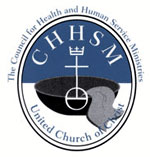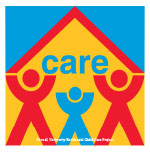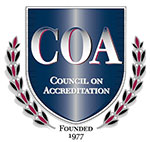PROGRAMS
GET INVOLVED
SUPPORT OUR MISSION

As the country slowly begins the phase-in process, our community leaders and social service advocates have been concerned about the well-being of our nation’s children. During the shelter-in-place order, with school and daycare center closings, the number of calls reporting child abuse dropped drastically. With fewer calls being reported to the Department of Children and Family Services (DCFS) hotline, this meant children’s safety is at an increased risk at a time when families are under emotional, physical, and financial stress. As an advocate for our communities’ families, Hoyleton staff members worked tirelessly to provide needed support to our foster and biological families. I had an opportunity to connect with Becky Woolever, Child Welfare Manager, regarding the way forward as Hoyleton moves into the next phase of our new normal.
As Illinois begins the phase-in process, what will these changes mean for Hoyleton’s social workers as they care for families?
Hoyleton is taking a very proactive approach to how we provide care to our families. While DCFS has provided some guidelines, we seek to establish safe methods for our social workers to get back into the field. Our phase-in plan breaks our social workers into teams, with each team coming into the office on different days. We are still encouraging working remotely, but with the proper precautions (PPE, social distancing, and temperature checks before entering the office), our staff can move ahead in processing required documents to place youth into caring homes.
Also, we have transitioned social workers into doing in-home visits. Before meeting, we will call and ask questions pertaining to COVID-19 to verify if individuals within the home are well. Social workers will wear PPE and can bring additional PPE for clients. The Foster Care Department prioritized the families we consider high-risk to minimize the chances of abuse. In mid-June, we started visiting the homes of unlicensed foster homes (relative care), specialized care (behavioral), and aftercare (children in the care of biological parents). Starting in July, we will see every child in the home at least once a month, except for our medically high-risk youth. Medically high-risk youth will be seen weekly via a phone or video conference. This is done to minimize the risk of infection for this group of youth.
There is a real concern abuse has not declined but is underreported. How is Hoyleton prepared to address the increase in child abuse cases when communities begin to reopen?
Hoyleton continues to hire and train new staff to prepare for the influx of potential new cases. We also push for reunification and permanency through adoption/ guardianship. The Foster care Department is actively recruiting individuals to become foster parents. During the shelter-in-place order, we continued to receive referrals via word-of-mouth from other foster parents. Our social workers also work as brand ambassadors for Hoyleton by speaking about our mission and wearing clothing that promotes our organization.
We currently have several prospective foster parents who are utilizing our online training classes. DCFS is providing training on COVID-19, as well as PRIDE training for potential foster parents to receive their license. And once we are cleared, Hoyleton will provide in-class TCI and CARE training for foster parents.
How will Hoyleton be a part of helping families move forward? And what resources will Hoyleton provide families as we transition into a “new normal”?
Our Grant Department and the programs within Hoyleton allow us to share needed resources with our clients without going outside the agency. Clients made use of essential programs like Counseling Care and the Wraparound program. The use of COVID-19 specific grants helped biological and foster parents receive needed supplies like food, diapers, cleaning products, and more.
What takeaway would you like our readers to know?
As the number of reported cases of abuse rise, I want individuals to know that our communities’ children need you. Hoyleton is here with resources to help potential foster parents. We are aware that bringing a youth into your home during a pandemic can be scary, but these children need a safe place to call home. Hoyleton is here to make sure all parties involved are as safe as possible. As we find our new normal, we need to remember we are all in this together.
For more information on becoming a foster parent, please visit our website at www.Hoyleton.org, or call at 618.688.4727. Together, we make a difference in a child’s life.
#HoyletonCares, #Hoyleton, #WeAreAllInThisTogether, #FosterCare, #FosterCareParent


